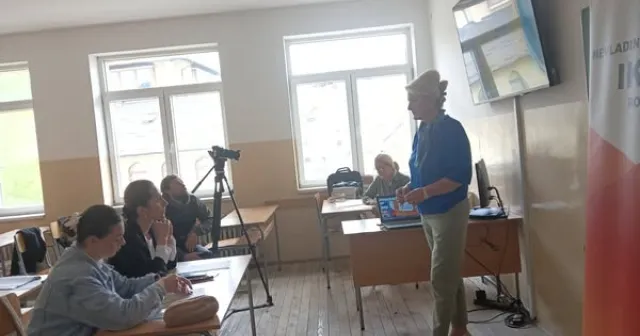Reflections on resilience skills
Sometimes I read an article or hear someone talking or even see a meme and I think “Yes! My thoughts exactly!”. This experience is especially beneficial when I feel supported in my personal views on education and training, lifelong learning, social and economic inclusion, and democratic participation.
Last week I took the time to look through some of the articles of the ELM Magazine, the European online magazine on adult learning that in an excellent way complements the EPALE platform. One article that especially caught my eye was a two-year old Opinion piece by Maja Maksimović on resilience.
Resilience is a skill that can be learned
Resilience was a huge topic during the Covid-19 pandemic, referring to the ability to adapt and recover from stressors around us. We should develop coping skills and a resistance to the negativity and problems we face during a lockdown. However, resilience is also considered an excellent skill for coping with life in general – post-Covid – to adapt to challenging life experiences. And this is where the author makes an interesting leap.
Maksimović finds that “the underlying assumption [of the necessity of developing resilience] is that the world is beyond our control, and that changes are happening outside the realm of our influence.” Since we cannot do anything about the problem itself (for instance, it seems that we are unable to prohibit live animal markets that are the likely source of the COVID-19 pandemic), we need to develop individual coping mechanisms – resilience – to adapt to the consequences. In her article, Maksimović´s main argument is that this is at odds with lifelong learning´s vision of developing “personal agency of creating and influencing the society.”
Addressing problems instead of adjusting to them
This idea of going beyond the demands on people to adjust to a problematic situation – whether it is a pandemic, unemployment, or climate change – and rather equip them with skills to address society´s structural and systemic problems, rings very true with me. For years I have tried to promote a view on education and training where the main objective should be to support people in their development to become active citizens who can take part in the current and future development, and not leaving this to corporations and other powerful commercial interests.
For instance, during the 2023 Year of Skills, it has been highlighted that we need to equip people with the digital skills necessary to take part in the ICT development. It seems that we have accepted that this digital development will happen without us being able to influence it in any way, and we are teaching our students not to aim for any influence in this development but rather adopting the skills and the resilience requested to consume it. It is obviously our job as teachers to teach ICT skills – but isn´t it also our job to teach people how they can influence and take part in societal development and make decisions on the use of ICT?
The 2023 Year of Skills has had a strong focus on digital skills for adults, demonstrating how ICT knowhow is essential today and in the future. ICT shapes our lives in good ways and bad ways. But ICT development is not a force of nature. Its use can be steered and monitored, like any other product or service, and in a democratic society we are all decision-makers.
The power of solidarity and democratic participation
Having our failures to make decisions on digital development in mind, what can be done to strengthen the democratic participation, activism, empowerment, and entrepreneurship of lifelong learners? Perhaps the first step is to acknowledge that today´s largely accepted views on individuality and individual responsibility unfortunately teach us that any problems we face are not part of societal or structural failures, but rather located inside ourselves. I find that a relevant example is how the war on poverty – addressing structural failures – has turned to a war on the poor – focusing on their personal failures and shortcomings.
Maja Maksimović maintains that such positions hinder community and political engagement and deny us the opportunity to address these failures. She suggests that instead of teaching our students and ourselves to be resilient in the face of adversity, we should teach the power of solidarity and how to be insistent on access to e.g. public services. I think that we can go even further and teach our students that our ideas on democracy, equality, and justice are not meant as rhetoric, but as living concepts that should be the basis for current and future societal development. And it is part of our job to show them how.




